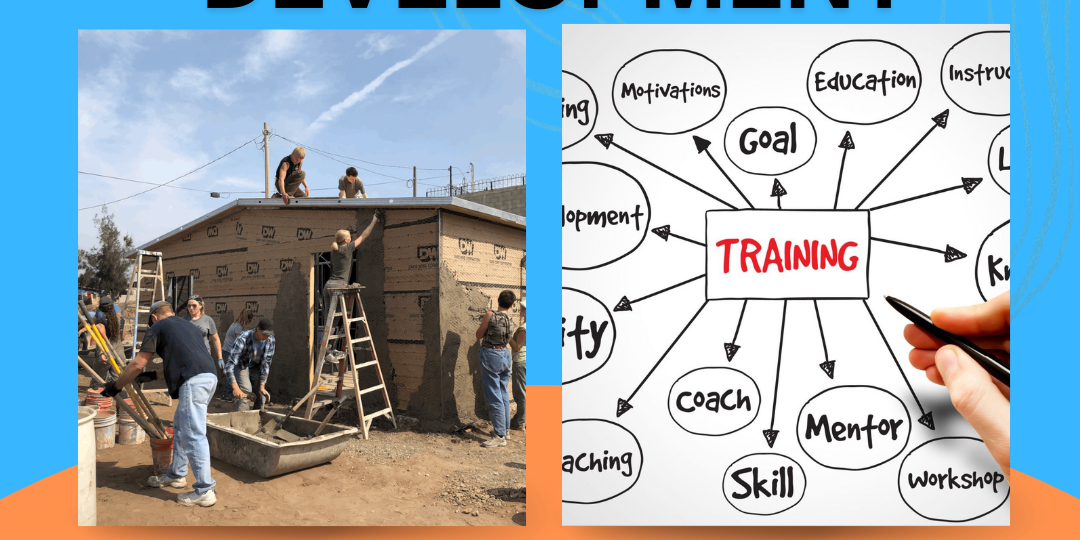It was a great day for everyone as we finished building a house for a single mom and her family. We gave the family the keys to their new home. Tears were shed, hugs were given, and a prayer was offered. This family would now have a better place to stay and raise a family than the dilapidated house they used to live in just a few weeks ago. As we walked away, we felt good about our work.
Fast forward eight years
I am driving past the house we built eight years earlier and noticed two large tarps on the roof. It had been a wet winter with more rain than usual. I stopped to talk to the single mom about her roof. She told me her roof had been leaking for two years and was terrible. But she didn’t have the financial means necessary to fix the roof. Even though she has a full-time job, she doesn’t earn a fair wage to maintain the house. She has enough to care for her family and pay the needed bills. In short, she was waiting on the following mission team to help her fix her roof. This story broke my heart. We had given her a new house, and though she lived in a better home than before, the house didn’t improve her overall economic situation.
If you have ever owned a house, you know there is ongoing maintenance, and over time, things wear out. Our aid in building her home was great for the first few years, but in the long term, she was essentially in the same financial position she was in just eight years prior. Is this the best we can do?
Aid is needed
The goal of aid is to meet the immediate needs of a person or a community. Think about what happens after a natural disaster (i.e., hurricanes, tornados, fires, etc.): house builds, food distributions, home remodels, fixing roofs, painting, etc. Many mission and service trips (especially in the Northern Baja of Mexico) are aid-focused, meaning they meet people’s real-time physical needs (house builds, home improvements).
But,
Aid is needed, especially after a disaster, but what happens if a community only gets aid for years (10-20-30 years)?
- It can demotivate people to better themselves— “Let the Americans do it” — it’s free.
- “Why work if someone else will do it for me?”
- Capable people feel useless and worthless. “Americans know better.” (Tongue and check)
- Victimization – A sense of needing to always ask for things.
- Looking elsewhere (sometimes the other side of the border wall) for a better way of life.
What if we focused more on development?
On the other hand, development is about resourcing individuals and communities to become self-sustaining. It’s about providing opportunities for growth and learning. We (Americans) have received developmental opportunities; we have progressed and bettered ourselves through these developmental opportunities (business and professional training, budgeting classes, skill development, etc.). These opportunities have given us the motivation and skills so that we can be better at our jobs and better our lives.
Now, imagine these opportunities’ impact in Northern Baja with a similar approach. We are not just talking about financial impact but also the potential growth in all areas of a person’s life and family. What are the benefits of development:
- A sense of motivation and responsibility.
- Learned skills that can give people the capability to better their living situation themselves.
- Confidence in their abilities.
- Better relationships
- Better families
- Desire to stay home and help the community to grow and be better.
It is Be2Live’s goal to responsibly meet real-time needs while providing more development opportunities for locals in Northern Baja through the Training Center and this new project we are launching (stay tuned). Will you partner with us?
Connect with us on social media:
Instagram – @Be2Live_Offical
Facebook – @Be2Live
Or send us your email to be added on our mailing list at info@be2live.org

